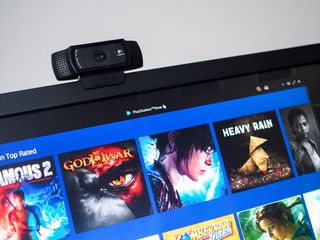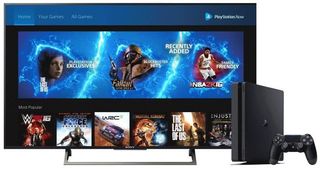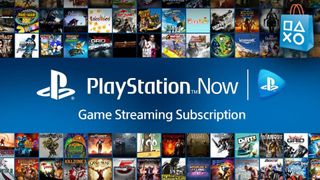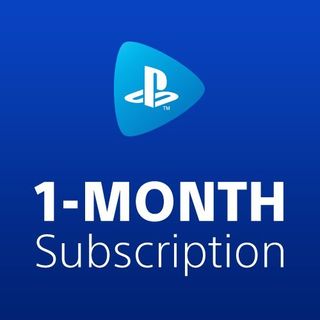Microsoft Project xCloud vs. PlayStation Now: Battle of the streaming services
Streaming is the ambitious future of gaming. We've seen them all, picking out the best.


Xbox on the go
Microsoft Project xCloud builds on the Xbox empire, expanding its influence beyond the living room. It's looking promising for all Xbox gamers and is set to debut in 2019.
For
- Headed to PCs, consoles, and mobile.
- Existing Xbox games are supported.
- Established background in cloud and gaming.
Against
- No examples of working code.
- Release still far away.

Smash hits of PlayStation
PlayStation Now is among the pioneers of game streaming, with a strong library of PlayStation titles. It's far from perfect but among the few available in 2018.
For
- Over 600 games.
- Nearly 5 years on the market.
- Available on PC and console.
Against
- Mixed performance.
- Expensive monthly charge.
PlayStation Now is well-established in streaming, but Project xCloud stows strong promises. Although Microsoft is poised for success, PlayStation Now is your way to play today.
Present meets the future

Online services have reshaped the games industry this generation, helping drive consistent content and revenue streams for the benefit of consumers platform-holders. Whether the rise of Netflix and Hulu for blockbusters or Spotify and Apple Music for chart-topping tunes, inclusive subscriptions has changed our entertainment consumption. And for games, subscription-based streaming is set to be the next big thing.
While Google and Microsoft are only just committing to full-fledged game streaming, PlayStation Now is already long-established in the space. The service first debuted shortly after the PlayStation 4 (PS4) launch, with nearly half a decade on the market. While first exclusive to home consoles, the service has since expanded to Windows PCs, serving a library of PS4, PS3, and PS2 titles.
Comparatively, Microsoft is just getting started with game-streaming via its newly-announced Project xCloud technology. Building upon existing cross-platform efforts, Microsoft hopes to fully mobilize the Xbox ecosystem, with streaming expected on PC, console, and most importantly, mobile. It's a promising concept, though unclear how Project xCloud will fare against competitors. For now, we're waiting on public trails planned for 2019.
Console wars reach the skies
PlayStation Now first surfaced at CES 2014, with Sony outlining plans for game-streaming across consoles, TVs, and mobile devices. This came just after acquiring Gaikai, a firm that made its name in low-latency streaming, with technology and expertise ushered into Sony's cloud empire. Condensing eight custom-built consoles into power-efficient server blades, it promised a true PlayStation experience away from consoles. After extensive public testing, the project saw its public debut in 2015.
PlayStation Now is currently supported across the PlayStation 4 family and Windows PCs, for those with an active monthly subscription. This is paired with a minimum 5Mbps download speed, however realistically, more than double is required for an ideal experience. And while service is fully functional, Sony's lackluster cloud infrastructure simply doesn't deliver the low-latency stutter-free gameplay required from streaming. Experiences can vary wildly based on countless factors and Sony still has several areas to improve.
Sony started with ambitious plans for PlayStation Now but its rollout hasn't been seamless. It promised availability on phones and tablets upon its unveiling, yet there are no signs of this availability in 2018. And while PlayStation 3, PlayStation Vita, PlayStation TV were all supported, they were axed in 2017 amid a shift to PS4 and PC exclusivity.
Get the Windows Central Newsletter
All the latest news, reviews, and guides for Windows and Xbox diehards.
| Header Cell - Column 0 | Project xCloud | PlayStation Now |
|---|---|---|
| Release date | Trial in 2019 | Out now |
| Known platforms | Xbox, PCs, phones, tablets | PlayStation 4, PC |
| Inputs | Controller and touchscreen | Controller |
| Network requirements | Unknown | 5Mbps download |
| Maximum output | Unknown | 1080p at 60 FPS |
| Monthly price | Unknown | $19.99 |

Microsoft has a well-established history in cloud technologies, following its success with the Azure platform. The backbone of Project xCloud is built on custom Xbox One consoles, with Microsoft deploying server blades each comprised of stripped-down Xbox One S components. Using the service connects to regional xCloud servers, streaming live gameplay to your device. While Microsoft has heightened expertise in cloud technologies over Sony, it's unclear how this will translate to the final product.
Microsoft is currently driving the service's mobile angle, with apps expected for PCs, tablets, and phones. With the help of 5G in coming years, Microsoft hopes players will take full console games on-the-go. And with rumors of a new console family under Project Scarlett, Microsoft is expected to deliver a low-cost console designed for streaming too. These are just promises today, but outline an exciting future for all gamers.
Which games can you play?

While PlayStation Now's underlying technologies have been criticized, its strongest aspect is its library. As of publication, Sony has secured over 600 titles, spanning three generations of console hardware.
Prominent first-party exclusives like Bloodborne, The Last of Us, and Until Dawn are in the spotlight, alongside new releases from third-party publishers. A console is still required for the most recent releases, but PlayStation Now still features games for all.

It's currently unclear how many titles are set for Project xCloud, although Microsoft has emphasized the seamless onboarding process for existing Xbox One titles. Leveraging a strong existing console library, developers will have the ability to opt-in for the service, deploying titles with "no additional work."
Microsoft has discussed several major Xbox One games headed to xCloud, including Forza, Halo, Gears of War, and other first-party franchises. Rockstar Games' upcoming Red Dead Redemption 2 has also been named. While it's unclear if these games will surface in the final product, it's a strong start.
Is Project xCloud or PlayStation Now for you?
PlayStation Now is framed as a monthly subscription service, requiring regular payment to keep playing its library. After a seven-day trial period, there are one-month and three-month subscriptions up for grabs, priced at $20 and $45 respectively. That's a steep price compared to most entertainment subscriptions, though can offer value to regular users. If you're dying to try game streaming today, the service is for you.
Microsoft is yet to discuss pricing for its game-streaming solution, however, already has several subscriptions under the Xbox brand. Xbox Game Pass serves a strong library of downloadable games, and streaming could be a natural extension of this service. Alternatively, if distributed standalone, Microsoft would need to justify its price via its lineup and underlying technology. Sadly, you'll need to wait until 2019.

PlayStation Now has strong competition ahead but leads the pack in 2018.
PlayStation Now is among the pioneers of streaming, with a strong library of PlayStation titles. Don't miss out on the future of gaming today.

Netflix meets Xbox One gaming.
While Project xCloud is still far away, Xbox Game Pass is Microsoft's existing subscription service. It's a Netflix for games paid monthly, securing access to over 100 Xbox One titles.
Matt Brown was formerly a Windows Central's Senior Editor, Xbox & PC, at Future. Following over seven years of professional consumer technology and gaming coverage, he’s focused on the world of Microsoft's gaming efforts. You can follow him on Twitter @mattjbrown.

